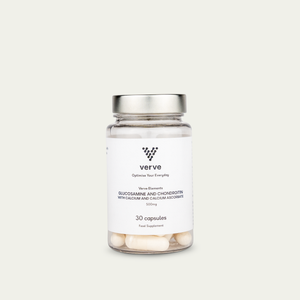Table of Contents
Con l'arrivo del nuovo anno arriva un rinnovato senso di scopo e promessa alimentato dall'eccitazione della possibilità. Eppure, solo 3 settimane dopo, ci ritroviamo qui, al Blue Monday, coniato come il giorno più deprimente dell'anno. Tuttavia, prima di disperare, prendiamoci conforto dal fatto che, lungi dall'essere il risultato di studi psicologici accademici e sottoposti a revisione paritaria, il "Blue Monday" è in realtà un espediente di marketing coniato da un'agenzia di viaggi. Naturalmente, la salute mentale di ogni individuo è un concetto sfumato e complesso, fondato sulla propria esperienza vissuta e non su una formula "scientifica". Detto questo, molte persone ritengono che gennaio sia uno dei mesi più difficili dell'anno e forse hai notato che la speranza e l'ambizione che provavi solo poche settimane fa hanno effettivamente iniziato a scemare? Sottoscrivere affermazioni sensazionalistiche e generalizzate sulla salute mentale non aiuta lo stigma che circonda l'argomento, né coloro che ne soffrono, ma ci invita a discutere di salute mentale in modo da evitare che il Blue Monday diventi una profezia che si autoavvera, non solo oggi, ma per tutto l'anno.
Confronto vs Congruenza
Le frasi "nuovo anno" e "nuovo me" sembrano stare insieme fin troppo bene. C'è un senso di ottimismo e opportunità quando ci viene data la possibilità di iniziare un altro anno da capo, e questo spinge la nostra necessità di pensare a come possiamo migliorare non solo le nostre vite, ma anche noi stessi. I social media hanno aggravato questo problema e, man mano che ci avviciniamo al 31 dicembre, iniziamo a sentire che non possiamo sfuggire all'idea che non dovremmo solo riflettere sull'anno e celebrare le nostre vittorie, ma anche se queste vittorie sono abbastanza buone da essere pubblicate online e celebrate anche dagli altri. Inerente a questo tipo di pratica socialmente dettata c'è un confronto tra sé e gli altri che ci spinge verso una versione ideale di chi vogliamo essere, il che forse è incongruente con chi siamo.
Quando interiorizziamo i valori, le convinzioni e i comportamenti degli altri come nostri ideali, non solo creiamo una serie di aspettative irrealistiche e irrealizzabili, ma stiamo anche dicendo che il nostro sé più autentico non è abbastanza buono. Il disallineamento tra chi siamo e chi vogliamo essere crea uno spazio in cui ansia, stress, frustrazione e sentimenti di scarsa autostima iniziano a prendere piede. Quindi, cosa significa questo per i nostri buoni propositi per l'anno nuovo? Significa che se i tuoi buoni propositi nascono dal confronto con gli altri e da indicatori di successo socialmente perpetuati, stai lavorando verso un sé ideale irrealistico e, di conseguenza, stai creando un ambiente che ha maggiori probabilità di ostacolare la tua crescita e contribuire a uno stato mentale negativo.
Fasi del cambiamento
A questo punto, sembra pertinente considerare la nostra intenzione quando stabiliamo degli obiettivi. Proprio come mangiamo il tacchino a Natale, prendiamo buoni propositi per il nuovo anno senza alcun motivo se non la data, ma la realtà è che la data è insignificante quando si considera la motivazione per il cambiamento. Senza la giusta intenzione, sarà difficile raccogliere la motivazione necessaria per apportare i cambiamenti che vuoi vedere, il che significa che ti stai preparando al fallimento e alle emozioni che ciò comporta. A volte siamo acutamente consapevoli di un comportamento che vorremmo cambiare, ma semplicemente non siamo pronti o non ci sentiamo preparati a farlo. In queste circostanze potrebbe sembrare impossibile mantenere il cambiamento di comportamento, il che può essere deprimente e demoralizzante, ed è probabilmente ciò che molti di noi stanno sperimentando mentre ci avviciniamo a metà gennaio.
Una risoluzione presa al momento giusto, che sia gennaio o giugno, ha più probabilità di avere successo, ma come facciamo a sapere quando è il momento giusto? Innanzitutto, hai preso coscienza di qualcosa che potresti voler cambiare, ma ti senti ancora apprensivo su cosa significherebbe per te apportare un cambiamento del genere. Quando trovi una determinazione interiore e ti senti più sicuro di essere impegnato nel tuo obiettivo, potresti iniziare a implementare piccoli cambiamenti e iniziare a prepararti per il passo successivo. Ora, intuitivamente, sembra che il momento sia giusto.
Stabilire un obiettivo deliberato e intenzionale che sia significativo per sé stessi ha maggiori probabilità di produrre un risultato positivo, per cui la nostra motivazione prende slancio e ci sentiamo più energici e fiduciosi nel perseguimento dei nostri obiettivi. Quindi, invece di soccombere alla pressione di prendere una risoluzione all'inizio del nuovo anno e sentirci delusi solo pochi giorni dopo, aspetta di sapere di essere pronto e impegnato nel cambiamento, con le basi per avere successo.
Consapevolezza
Detto questo, gennaio porta con sé un innegabile senso di ottimistica anticipazione sulla possibilità di ciò che ci aspetta, e sembra quasi uno spreco non sfruttare quell'energia a beneficio della nostra salute mentale. Ora comprendiamo che i nostri obiettivi dovrebbero essere un impegno consapevole verso un cambiamento realistico, realizzabile e intenzionale allineato con il nostro sé più autentico, ma come possiamo diventare più consapevoli di chi è? Iniziamo diventando un osservatore di sé; un osservatore che si astiene da critiche e giudizi ma coltiva compassione e curiosità. Ascolta ciò che il tuo corpo e i tuoi sensi ti stanno dicendo, nota ciò che sta occupando il tuo spazio mentale, porta consapevolezza alle tue risposte emotive e prendi nota delle persone, dei luoghi e delle attività che ti danno gioia. Diventando più curiosi, ci diamo il permesso di esplorare noi stessi attraverso una lente diversa, scoprendo verità nascoste, in modo da poter essere più in sintonia con il nostro sé autentico. Le pratiche di consapevolezza e introspezione ci invitano a sviluppare la consapevolezza di noi stessi, ma farlo con curiosità e compassione coltiva anche l'accettazione di noi stessi. Adottando uno stile di vita più consapevole e intenzionale, ci ritroviamo a fare di più ciò che conta per noi e ad avvicinarci a uno stato di coerenza.
La coerenza favorisce un benessere psicologico positivo, poiché quando i nostri valori, pensieri ed emozioni si allineano con il nostro comportamento, la nostra vita diventa più significativa e appagante e, in generale, ci sentiamo più felici.
Quindi, dove ci porta tutto questo? Stabilire degli obiettivi aumenta la nostra motivazione in quanto fornisce direzione, concentrazione e scopo, mettendoci sulla strada per raggiungere il nostro pieno potenziale, ma ci sono delle avvertenze che è essenziale comprendere. Se ti ritrovi qui, nel Blue Monday, a sentirti abbattuto e scoraggiato perché stai già lottando per tenere il passo con i tuoi buoni propositi per il nuovo anno, è probabile che non fossero i buoni propositi giusti per te. Utilizza la consapevolezza per conoscere meglio il vero te, ma fallo con compassionevole curiosità e senza critiche per promuovere una mentalità di crescita.
Abbassa il volume delle aspettative e delle pressioni socioculturali, così da poter stabilire obiettivi intrinsecamente guidati e intenzionali quando sarà il momento giusto per te. In questo momento finale, ti incoraggio a riflettere sui tuoi buoni propositi per il nuovo anno. Permettiti di connetterti con la versione più vera di te stesso e, con gentilezza, comprensione e accettazione, ti invito a riscrivere i buoni propositi che invece coltiveranno crescita, realizzazione e felicità.
Sian Pentin, MBACP, laurea specialistica, laurea triennale




















































